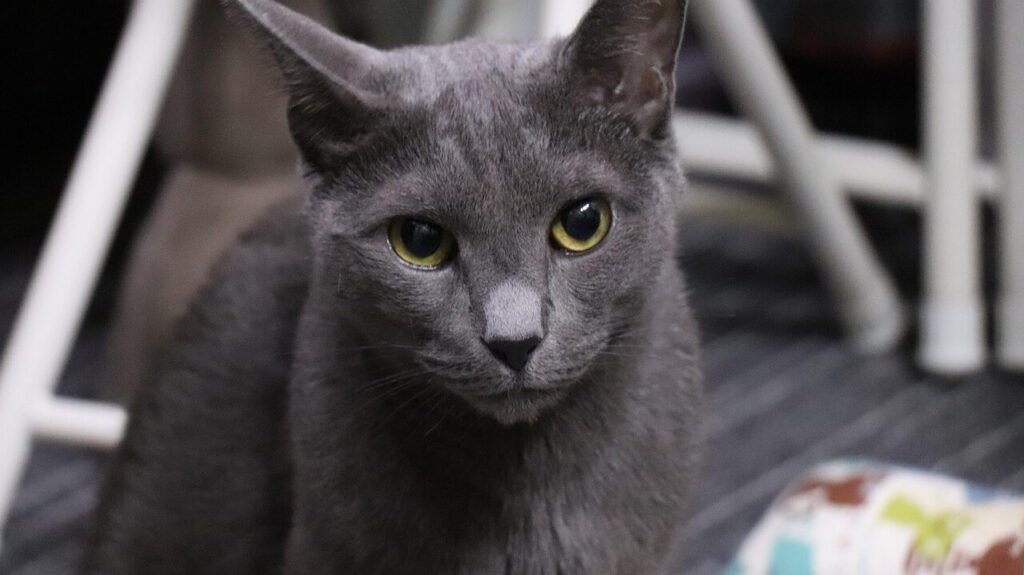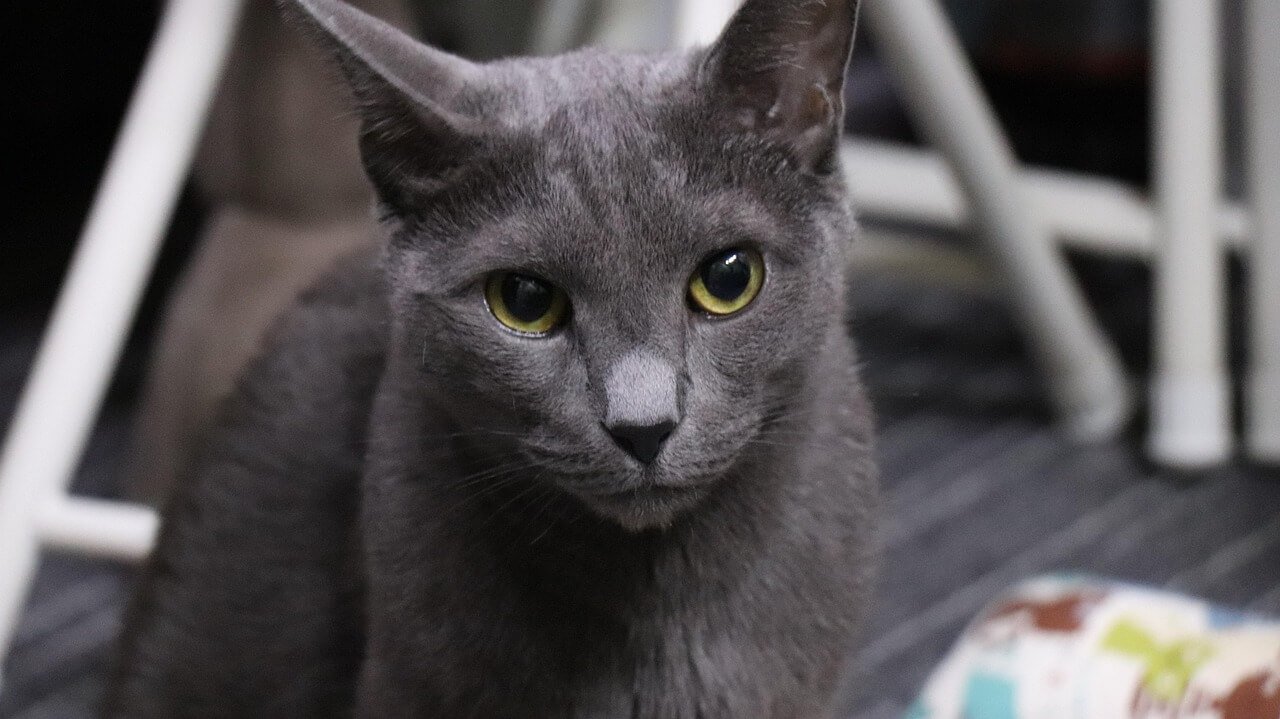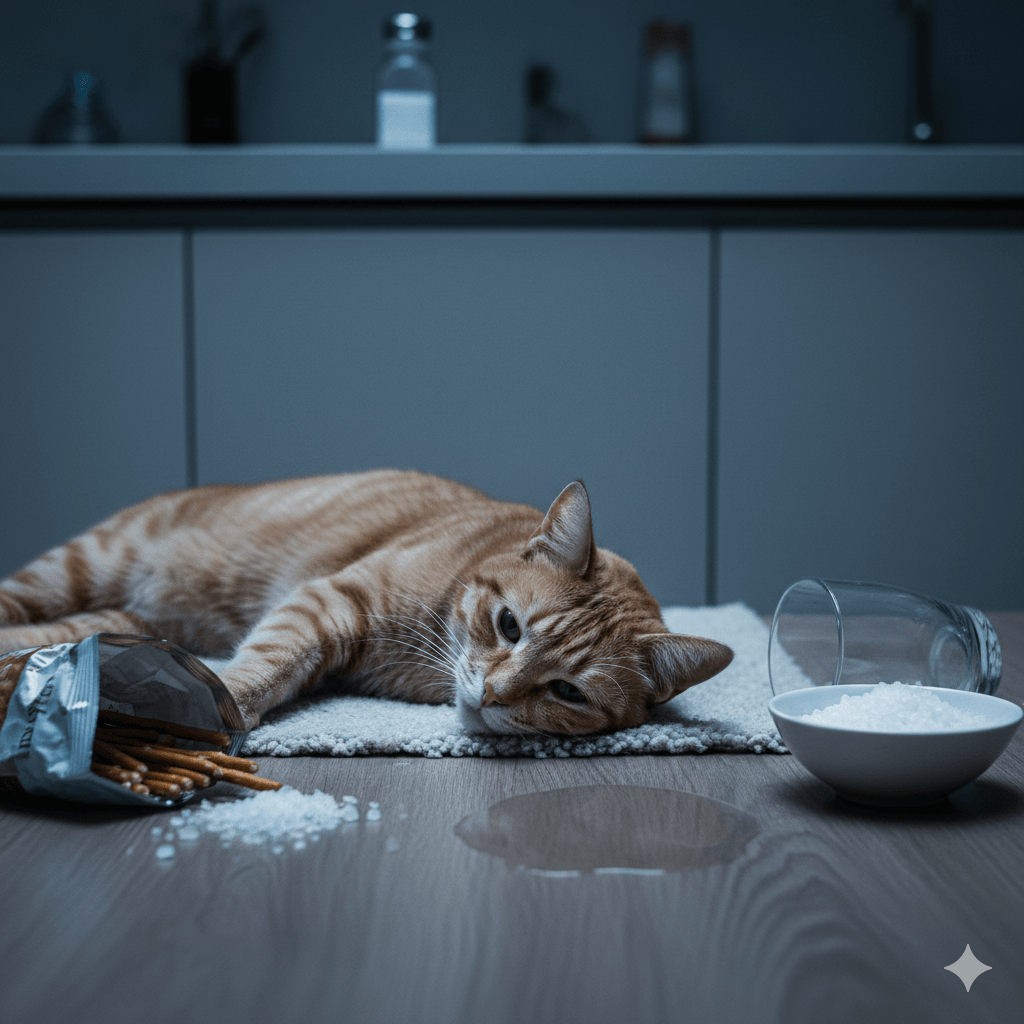Cat Swollen Chin: Understanding the Causes and Solutions
A swollen chin in cats can be alarming for any pet owner. While it may seem like a minor issue at first, this condition can indicate underlying health problems that require prompt attention. From infections to dental issues or even trauma, there are several potential causes for a cat’s swollen chin. Recognizing the signs early and understanding the possible reasons behind this symptom is crucial for ensuring your feline friend receives the care they need. In this article, we’ll explore the common causes of a swollen chin, how to identify them, and what steps you can take to help your cat feel better.
What Could Be Causing Your Cat’s Swollen Chin?
A swollen chin in cats can result from various factors, ranging from minor irritations to more serious medical conditions. Identifying the root cause is essential for proper treatment. Below are some of the most common causes:
Dental Abscess :
A pocket of pus caused by a bacterial infection in the teeth or gums can lead to swelling in the chin area.Feline Acne :
Blackheads or pimples on the chin can become inflamed, causing redness and swelling.Trauma or Injury :
Bites, scratches, or blunt force injuries may result in localized swelling.Allergic Reactions :
Food, environmental allergens, or flea bites can trigger an inflammatory response in the chin.Tumors or Growths :
Benign or malignant growths in the chin area can cause noticeable swelling.
Understanding these potential causes can guide you toward the appropriate next steps. If your cat’s swollen chin persists or worsens, consult a veterinarian for a thorough evaluation.
Signs That Indicate a Problem with Your Cat’s Chin
While a swollen chin is the primary symptom, other accompanying signs can provide clues about the underlying issue. Monitoring your cat’s behavior and physical condition can help you determine the severity of the problem.
Redness or Discoloration :
The skin around the chin may appear red, irritated, or discolored.Pain or Sensitivity :
Your cat may flinch, hiss, or show discomfort when you touch their chin.Excessive Drooling :
Drooling could indicate dental pain or difficulty eating due to the swelling.Lethargy or Loss of Appetite :
These symptoms suggest your cat may be feeling unwell beyond just the chin issue.Draining Pus or Fluid :
A discharge from the swollen area might signal an infection or abscess.
If you notice any of these additional symptoms, it’s important to seek veterinary care promptly. Early intervention can prevent complications and ensure your cat’s speedy recovery.
Check this guide 👉Cat Swollen Eye Treatment at Home: Best 7 Expert Tips!
Check this guide 👉Understanding Cat Swollen Paw: Best 7 Health Tips!
Check this guide 👉Swollen Cat Ear: Best 7 Expert Tips!

Possible Causes of Swollen Chin | Treatment Options |
|---|---|
Dental Abscess | Antibiotics, tooth extraction if needed |
Feline Acne | Medicated wipes, topical treatments |
Trauma or Injury | Pain relief, wound cleaning |
Allergic Reaction | Antihistamines, identifying/removing allergen |
Tumors or Growths | Biopsy, surgery, or monitoring |
How to Support Your Cat’s Recovery at Home
While professional veterinary care is essential, there are steps you can take at home to support your cat’s healing process. Proper aftercare ensures your cat remains comfortable and recovers faster.
Clean the Area Gently :
Use a damp cloth to clean around the swollen area, avoiding harsh chemicals.Monitor Eating Habits :
Ensure your cat continues to eat and drink; soft foods may be easier during recovery.Avoid Irritants :
Switch to stainless steel or ceramic bowls if plastic is suspected as an allergen.Administer Medications as Directed :
Follow your vet’s instructions carefully when giving prescribed medications.Provide a Stress-Free Environment :
Minimize stressors to help your cat focus on healing without added anxiety.
By taking these measures, you can create a supportive environment for your cat’s recovery. Always follow up with your vet if the condition doesn’t improve.
Recognizing When It’s Time for Professional Help
While mild cases of a swollen chin may resolve on their own, certain situations require immediate veterinary attention. Knowing when to seek professional care can make all the difference in your cat’s health.
Persistent Swelling :
If the swelling doesn’t subside within a day or two, it’s time to see a vet.Fever or Lethargy :
Signs of systemic illness, such as fever or extreme tiredness, warrant urgent care.Difficulty Eating or Drinking :
Trouble consuming food or water indicates a potentially serious issue.Visible Wounds or Pus :
Open sores or draining abscesses need professional cleaning and treatment.Behavioral Changes :
Sudden aggression, hiding, or withdrawal may signal significant discomfort or pain.
Prompt veterinary care can prevent complications and ensure your cat gets the treatment they need. Never hesitate to reach out to your vet if you’re unsure.
How to Keep Your Cat’s Chin Healthy and Problem-Free
Prevention is always better than cure when it comes to your cat’s health. Taking proactive steps can significantly reduce the risk of issues like a swollen chin. Here are some preventive measures you can implement to keep your cat’s chin in good condition:
Regular Dental Care :
Brush your cat’s teeth weekly or provide dental treats to prevent gum disease and abscesses.Clean Food and Water Bowls :
Wash bowls daily to prevent bacteria buildup that could irritate your cat’s chin.Monitor for Allergies :
Introduce new foods gradually and observe for any adverse reactions.Check for Feline Acne :
Inspect your cat’s chin regularly for blackheads or early signs of irritation.Avoid Rough Play :
Discourage behaviors or activities that could lead to chin injuries.
By incorporating these habits into your routine, you can minimize the chances of your cat developing a swollen chin. Prevention ensures your cat stays healthy and comfortable in the long run.
Exploring Gentle Solutions for Minor Swelling
For mild cases of a swollen chin, some pet owners turn to alternative remedies to complement veterinary care. While these methods should never replace professional treatment, they can provide additional support. Here are a few options to consider:
Warm Compresses :
Applying a warm, damp cloth to the swollen area can help reduce inflammation.Coconut Oil :
A small amount of food-grade coconut oil may soothe irritated skin if allergies are suspected.Herbal Teas :
Chamomile tea, cooled and applied with a cotton ball, can have calming effects on inflamed skin.Probiotics :
Adding probiotics to your cat’s diet may improve gut health and reduce allergic reactions.Epsom Salt Soaks :
For minor wounds, diluted Epsom salt solutions can clean and promote healing (use cautiously).
While alternative remedies can be helpful, always consult your vet before trying new treatments. These methods work best as supplements to professional care rather than standalone solutions.
Helping Your Cat Stay Calm and Comfortable
Recovering from a swollen chin isn’t just a physical challenge—it can also affect your cat’s emotional well-being. Providing emotional support during this time can make a significant difference in their overall recovery process. Here are ways to comfort your cat while they heal:
Extra Attention :
Spend quality time with your cat to reassure them and strengthen your bond.Create a Quiet Space :
Set up a calm, secluded area where your cat can rest without disturbances.Use Familiar Items :
Surround your cat with familiar blankets or toys to provide a sense of security.Limit Handling :
Avoid touching the swollen area unless necessary to prevent additional stress.Maintain Routine :
Stick to regular feeding and play schedules to offer stability during recovery.
A calm and loving environment can significantly aid your cat’s healing process. Remember, your presence and care mean the world to them during this vulnerable time.
Frequently Asked Questions About Cat Swollen Chin
Can I treat my cat’s swollen chin at home?
Minor cases may improve with home care, but persistent or severe swelling requires veterinary attention.
Is feline acne common?
Yes, it’s relatively common and often manageable with proper hygiene and treatment.
What should I do if my cat has a dental abscess?
Visit your vet immediately, as abscesses typically require antibiotics and possibly tooth extraction.
Can allergies cause a swollen chin?
Yes, allergic reactions to food, fleas, or environmental factors can lead to chin swelling.
How long does it take for a swollen chin to heal?
Healing time varies depending on the cause; minor cases may resolve in days, while infections or tumors may take weeks or longer.
Final Thoughts: Prioritizing Your Cat’s Health
A swollen chin in cats is not something to ignore, as it can signify anything from a minor irritation to a serious medical condition. By staying vigilant and recognizing the signs early, you can ensure your cat receives the care they need to recover fully. Whether it’s maintaining good oral hygiene, addressing allergies, or seeking veterinary treatment, every step you take contributes to your cat’s well-being. Remember, your furry companion relies on you to advocate for their health—so trust your instincts and act swiftly when something seems off. With love, care, and timely intervention, your cat will soon be back to their playful, happy self.
Poodle Water Dog: Best 7 Expert Tips! – Discover how Poodles excel in water activities, from swimming to training, and unlock their aquatic potential today.
Salt Poisoning in Cats: Best 7 Expert Tips! – Learn the dangers of salt toxicity, spot symptoms early, and discover how to keep your cat safe from this serious health risk.
Salt Poisoning in Dogs: Best 7 Expert Tips! – Learn the dangers of salt toxicity, recognize symptoms, and discover life-saving steps to protect your dog.
Can Too Much CBD Kill a Cat? Best 7 Expert Tips! – Discover the risks, safe dosages, and signs of CBD toxicity to keep your cat safe and healthy.





